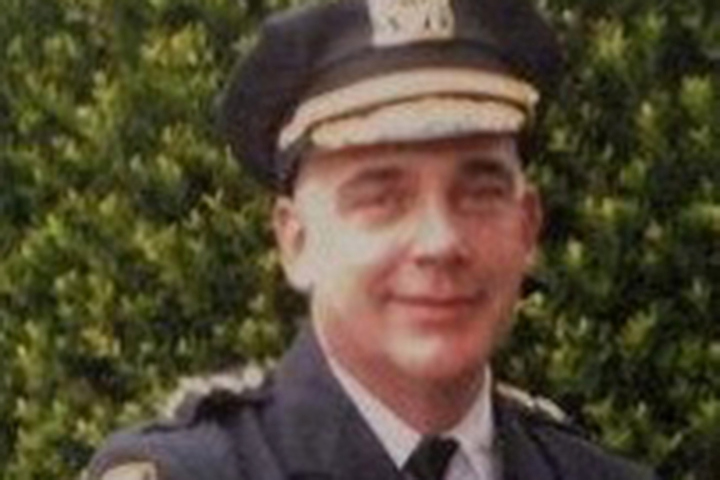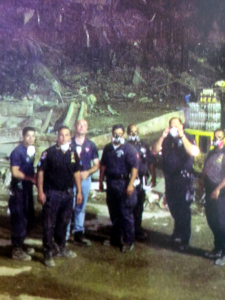Philip Messing New York Post
A former top official at the City University of New York died of 9/11-related brain cancer over the weekend — making him the school’s first Ground Zero responder to pass away from illness tied to the attack’s aftermath.
John P. McKee, 49, the one-time deputy chief of public safety for CUNY, died at his home in Lynbrook, Long Island, at 6:25 p.m., said his friend and former colleague, CUNY Lt. Anthony Laperuta.
McKee was diagnosed with brain cancer in November 2012.
Once second-in-charge of the city’s university security apparatus, McKee responded to Ground Zero immediately after the Twin Towers collapsed and spent three straight days living there while dealing with issues related to CUNY.
He then spent a month working there on search-and-recovery efforts, sources said.
Although McKee participated in regular screenings for first responders as part of a program at Mt. Sinai Medical Center, nothing unusual showed up until he fell ill in November 2012, complaining of dizziness, trouble gripping objects and difficulty speaking, Laperuta recalled.
An MRI revealed a golf-ball sized tumor in his brain, which was diagnosed as glioblastoma multiforme Stage IV cancer, for which he underwent surgery in January 2013, said his wife, Sandy Santiago McKee.
His widow, a purchasing administrator at Jamaica Hospital, fought back tears when she recalled marrying McKee soon after his diagnosis.
“He was a tough Irishman. John was the best — he fought until the end with his last breath,” she said.
“About six months after he was diagnosed, he said to me, ‘I guess you don’t want to get married now because I have cancer.’ I told him, ‘When you love someone, you love them whether they have cancer or not,’ ” she recalled.
“He was happy he could die at home instead of at a hospital,” she added.
Last month, The Post reported how the feds have certified 3,700 first responders and others as suffering from 9/11-related cancers.
That total includes approximately 1,100 members of the FDNY, 2,134 cops and other first responders and 467 downtown workers and residents.
McKee began his CUNY career in September 1992 and rose through the ranks, serving under Director of Public Safety William Barry.
After his cancer diagnosis, he grew increasingly weaker and went out on permanent disability in July 2014.
Initially, his cancer was not included as those covered under the so-called Zadroga bill, which was signed by President Obama in January 2011.
The legislation provides special health benefits to thousands of first responders who have developed cancer and a variety of respiratory ailments in the years since 9/11. It was expanded in June 2012, enabling McKee to finally obtain benefits he’d initially been denied.
The Zadroga bill is currently the subject of intensive legislative lobbying in Washington, as temporary funding to cover the cost of providing benefits is expected to expire in October.
McKee is survived by three children from a prior marriage.
A wake will be held Flinch & Bruns Funeral Home, at 34 Hempstead Ave., in Lynbrook on Tuesday from 10 a.m. to noon, 2 to 4 p.m. and 7 to 9 p.m.
A funeral mass will be held at 10 a.m. Wednesday, at St. Raymond Church, 263 Atlantic Ave., East Rockaway, Long Island, followed by burial at Saint Charles Cemetery in Farmingdale.



